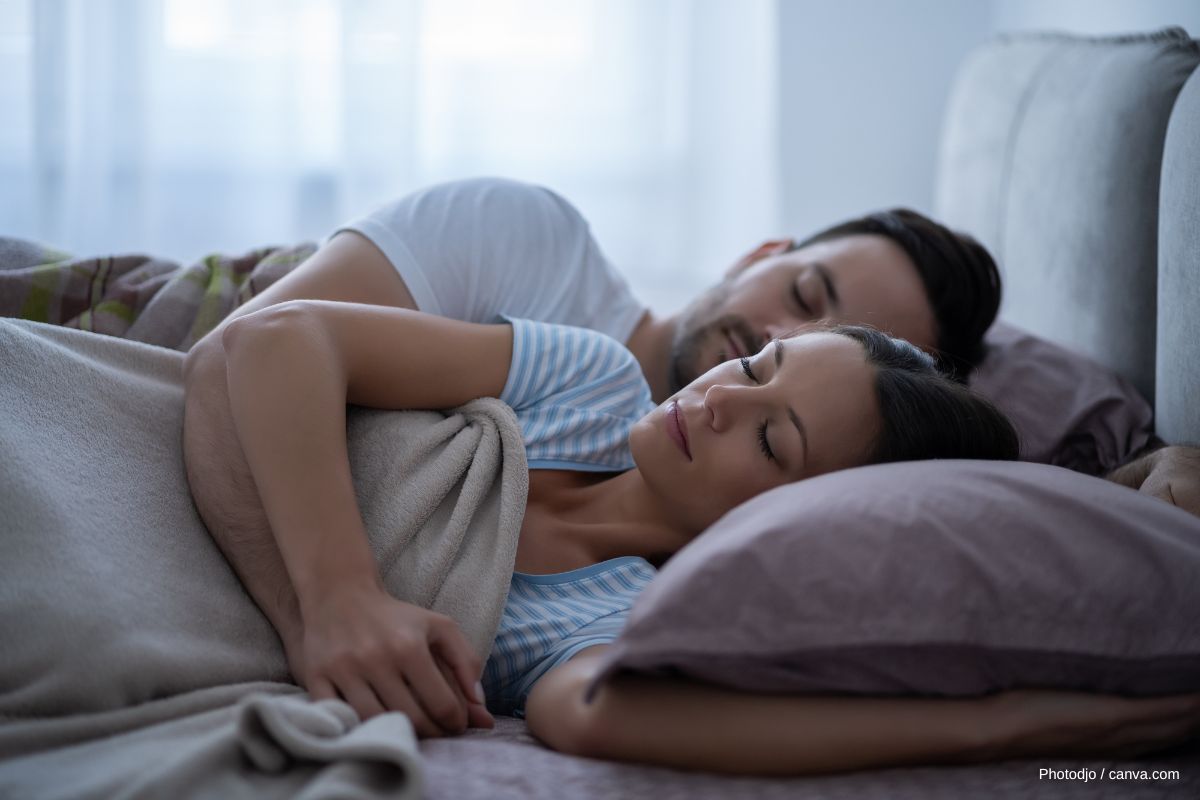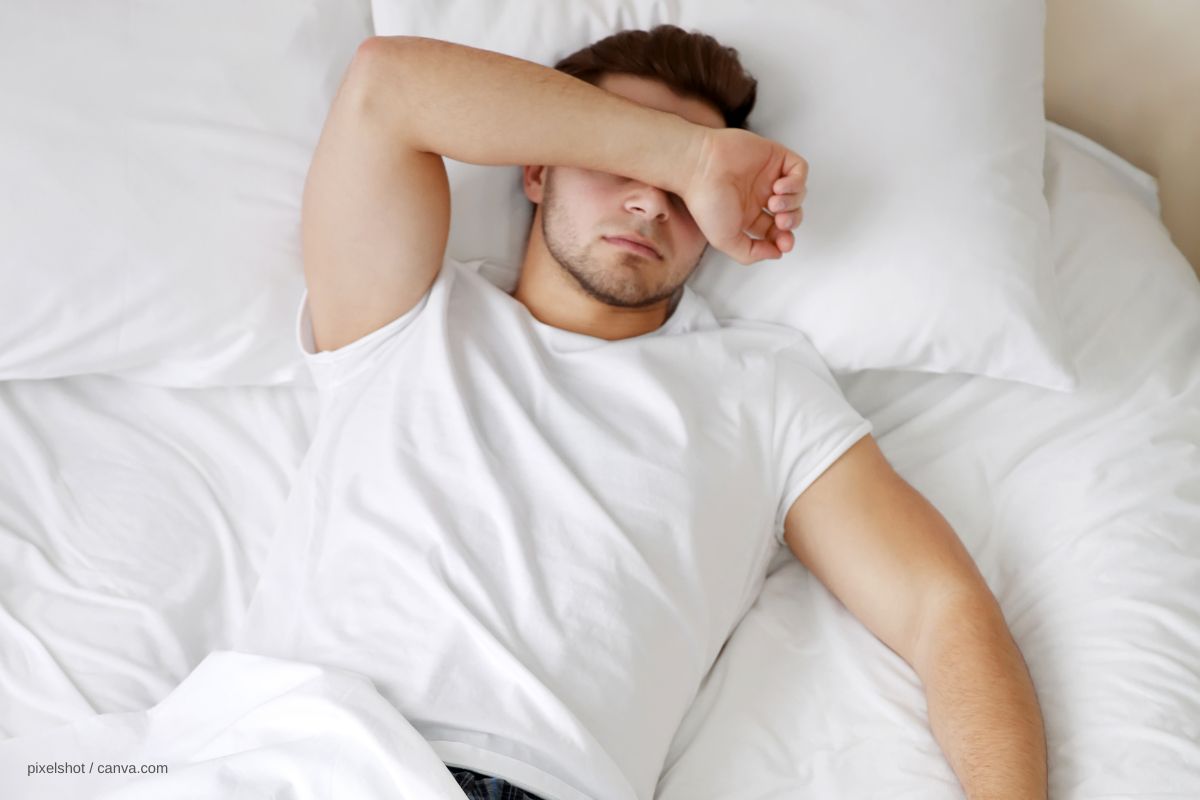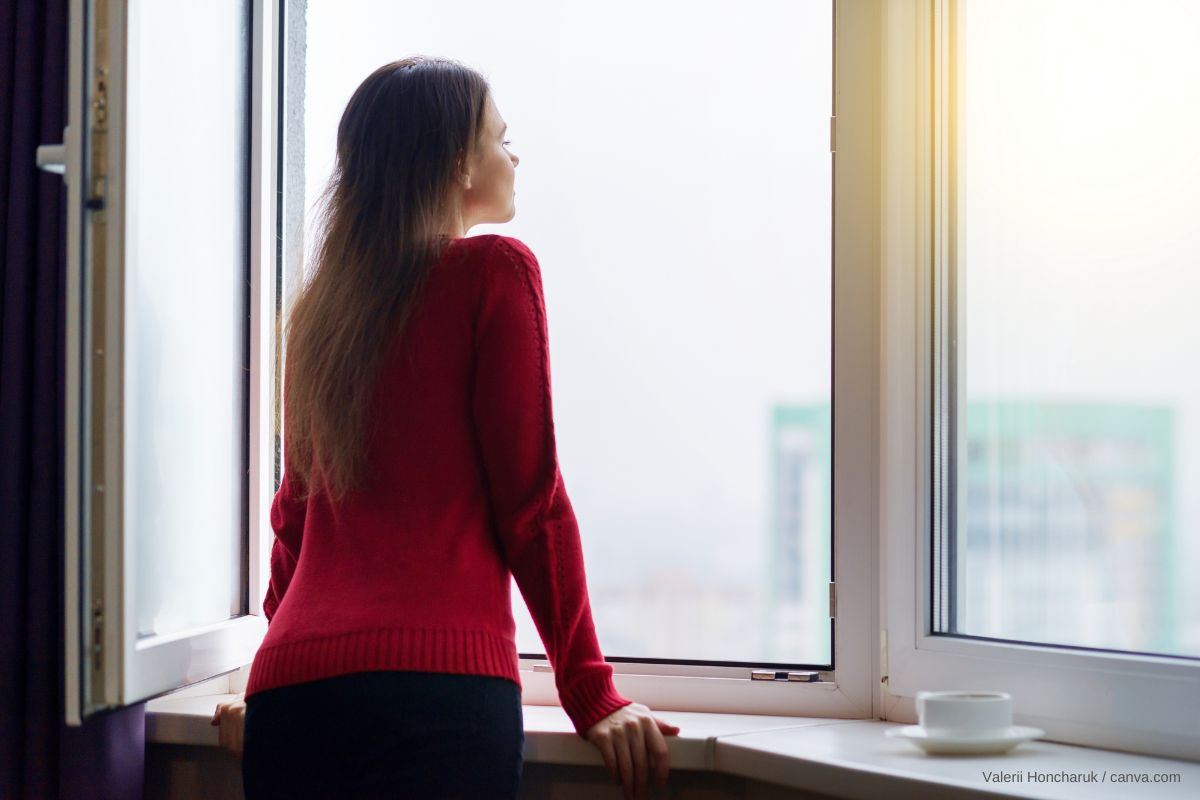How to Sleep Better - The Best Sleep Tips for Restful Sleep

Are you getting enough sleep? When we get a good night's rest, we feel refreshed in the morning and start the day in a good mood. But the reality is sometimes different: If you have trouble sleeping and just can't get to sleep at night or sleep through the night even though you really want to, what can you do? Below are ten tips for better sleep that are easy to implement. They will help you to quickly ease your problems and finally enjoy more relaxation at night.
Sleep disorder: How can I finally sleep better?
An increasing number of people are finding it difficult to wind down in the evening. In times of working from home and social media, we are constantly available and often feel like we have to be productive around the clock. However, this exposes us to a great deal of stress. Stress is considered the number one killer of sleep for good reason. If you too lack the necessary relaxation to fall asleep carefree, you lie awake late at night tossing and turning in your bed. We've probably all experienced the feeling of not being able to enter dreamland despite being exhausted and tired. Our ten sleep tips are therefore just what you need!
Ten tips and tricks to fall asleep more easily
If we have difficulty sleeping, some people resort to a quick fix in the form of sleeping pills. However, these only help temporarily. For a good night's sleep long-term, it is important to tackle the causes of sleep disorders and practice good sleep hygiene. Sufficient sleep is important for our well-being and in the evening, it is important that body and mind can rest. So here are ten simple tips on how to reduce daytime sleepiness and establish a healthy day-night rhythm.
Pay attention to your personal sleep rhythm
Healthy sleep comes in many forms. While some of us are natural early risers who are bursting with energy in the morning (the so-called lark type), others are morning grouches and hardly get out of their cozy bed in the morning (the owl type). Most people fall somewhere between the two extremes in terms of their chronotype. If you follow your biological rhythm and pay attention to your body's signals, your sleep will be much more relaxed.

As a lark, you don't have to ignore emerging signs of tiredness such as increased yawning and heavy eyelids just to go to bed at a "normal time". If your body is ready to sleep at 9 pm, you should give it permission to rest. As an owl, on the other hand, you can make it easier to get up in the morning by pulling back the curtains in your bedroom and exposing yourself to natural sunlight. This has a positive effect on our circadian rhythm and can help you feel awake more quickly in the morning. Even if you wake up at night, you should make sure you go to bed no later than midnight during the week for the sake of a healthy sleep routine. Otherwise, your sleep cycle will be pushed back too much, and your body won't get enough valuable morning light. If possible, always go to bed at the same time so that your sleep time adjusts to a healthy pattern.
Avoid nicotine and alcohol before going to bed
Stimulants such as alcohol and nicotine cannot be included in a healthy sleep routine. Both substances interfere with bodily processes and ultimately spoil our sleep. Nicotine releases stimulating substances in the brain, so that the nighttime cigarette that supposedly puts us to sleep actually activates us and makes us more alert. Smokers are also observed to have shorter deep sleep phases. This means that your sleep under the influence of nicotine is not as restful and regenerative as it should be. Even if you sleep long enough, you will feel tired and exhausted the next morning instead of full of energy. Alcohol as a nightcap is also a bad idea. It has the opposite effect, making us tired and numbing us. Although this helps you fall asleep faster, you pay a high price for it: that glass of red wine in the evening makes you restless, your sleep superficial and, like nicotine, prevents you from getting enough restorative deep sleep.
Moderation with caffeine
Enjoying a coffee in the morning is a popular morning ritual that many people refuse to give up. However, while the stimulating effect of caffeine in the morning is definitely desirable to get us through the day in a productive and energized state, you should avoid caffeinated drinks such as coffee, black tea, and green tea from the early afternoon onwards. The reason: our body needs a certain amount of time to completely break down the caffeine in our blood. Particularly sensitive people and pregnant women should even avoid caffeine from midday if they want to fall asleep quickly in the evening. Fortunately, there are many tasty alternatives: For example, how about a caffeine-free nightcap such as a hot milk with honey or a relaxing herbal tea with hops, lemon balm, valerian, or lavender? These herbs have a proven calming effect on our bodies and can make it easier to fall asleep.

Start a sleep diary
Are you plagued by worries at night and find it difficult to let them go? Many sleep problems are caused by the fact that we take our everyday problems to bed with us. Therefore, writing down your thoughts in a sleep diary before going to bed can have a very positive effect on the quality of your sleep. As soon as you have put your worries on paper, you will feel more relaxed and freer inside. The same applies if you are a workaholic and often plan the next day at the office at night. Instead of going through appointments in your head, you can jot down important things you want to think about in a to-do list and go to sleep with the reassuring feeling that you have thought of everything. You can also use the diary to find out why you are currently finding it difficult to get a good night's sleep. Make a note of when you usually go to bed, what you did or watched before going to bed, how often you wake up during the night, etc. You should also record your energy levels when you wake up and your daytime activities. This will help you to identify possible factors that disrupt your sleep and establish better sleeping habits. Thanks to your notes, you may notice that you sleep particularly badly after eating a heavy meal before going to bed. In this case, it may help in the future to opt for a light dinner and incorporate sleep-promoting foods to get more rest at night.
Don't force yourself to stay in bed
People who have been struggling with sleepless nights for a long time sometimes want to force themselves to fall asleep. However, pressure and compulsion have a counterproductive effect on a good night's sleep, as they increase our stress. When we are stressed, it encourages our body to release more cortisol. The stress hormone can interfere with natural sleep-wake regulation and cause us to lie awake longer at night. Stress and emotional strain can also increase blood pressure, which further keeps us awake. So instead of checking your watch every few minutes the next time you can't rest or worry about how you're going to get through the next day at the office without a good night's sleep, it's a good idea to get out of bed. Spend the time doing activities that relax you and are good for you. Perhaps you can even do a few household chores, such as ironing or hanging up laundry, as long as they don't create any inner resistance. Alternatively, you could prepare a healthy breakfast to take to the office. All that matters is that you stop worrying about not getting enough sleep. At some point, tiredness will come naturally. And our bodies are good at regulating themselves: After a night with too little sleep, your body will probably compensate for the lack of sleep the next evening by making you extra tired.
Ban electronic devices from the bedroom
An hour before you go to sleep, you should stop using electronic devices. Not only is the blue light emitted by smartphones and the like suspected of unbalancing the production of the sleep hormone melatonin, thus delaying the time at which we fall asleep. The content you consume can also have a negative impact on your sleep. If you receive upsetting news late at night or watch scary videos that send your adrenaline levels through the roof, neither your body nor your mind can rest. The issues may linger with you for a long time, and you take them to bed with you, where they make it difficult for you to fall asleep and stay asleep.
Ensure a healthy sleep climate
You've probably noticed that you have trouble sleeping in summer when it's too hot. High temperatures can affect our sleep, because we need a dark and cool environment at night for optimal relaxation. The ideal room temperature for sleeping is around 18 degrees Celsius. By airing the room just before going to bed, you not only cool down the sleeping temperature, but also let an extra portion of oxygen into your bedroom. This creates a climate that is good for sleep and can help you fall asleep.

Promote relaxation and make it easier to fall asleep
Relaxing activities in the evening such as a cozy bedtime read or gentle relaxation exercises such as yoga and meditation make it easier for us to leave the day behind us and reset ourselves for relaxation. Evening rituals also give us some stability, as having a set routine allows our brain to stop thinking and planning for once. This also allows our minds to switch off and enjoy a break. If you haven't tried it yet, you could also integrate a bubble bath into your sleep routine. Bathing in hot water relaxes our muscles and afterwards, the slow drop in body temperature makes us tired. If you then go straight to bed, you will probably fall asleep particularly quickly.
Use your bed only for sleeping
Your bed should only be used for sleeping. If you can't fall asleep in the evening and lie awake night after night, this may be because your brain has learned to no longer associate your bed solely with rest. You may also use it for longer periods of time during the day, for example as a couch substitute when watching movies or you spend a lot of time on your phone scrolling through social media. There's nothing wrong with using the bed as a relaxing place to lie down from time to time. However, to improve your sleep, it can be very helpful to exclusively use your bed for sleeping for a while. Your brain will associate it with a place of rest again and you can alleviate your problems of falling asleep and staying asleep.
Turn and flip your mattress regularly
A worn mattress makes it difficult for us to enjoy restful sleep. It can no longer provide us with the necessary body support due to the hollows that form because of one-sided pressure. This results in restless nights and nasty tension and back pain when we wake up the next morning. Be honest with yourself: When was the last time you turned or flipped your mattress to ensure even support? To get a better night's sleep, you should make sure you turn your mattress more often and – if the core structure allows it – flip it over. This is not only good for your sleep, but also has a positive effect on the lifespan of your mattress. If you look after it well and use it correctly, a high-quality mattress can accompany you for up to 10 years.
Photo credits:
Photodjo / canva.com
pixelshot / canva.com
Nikodash / canva.com
Valerii Honcharuk / canva.com
